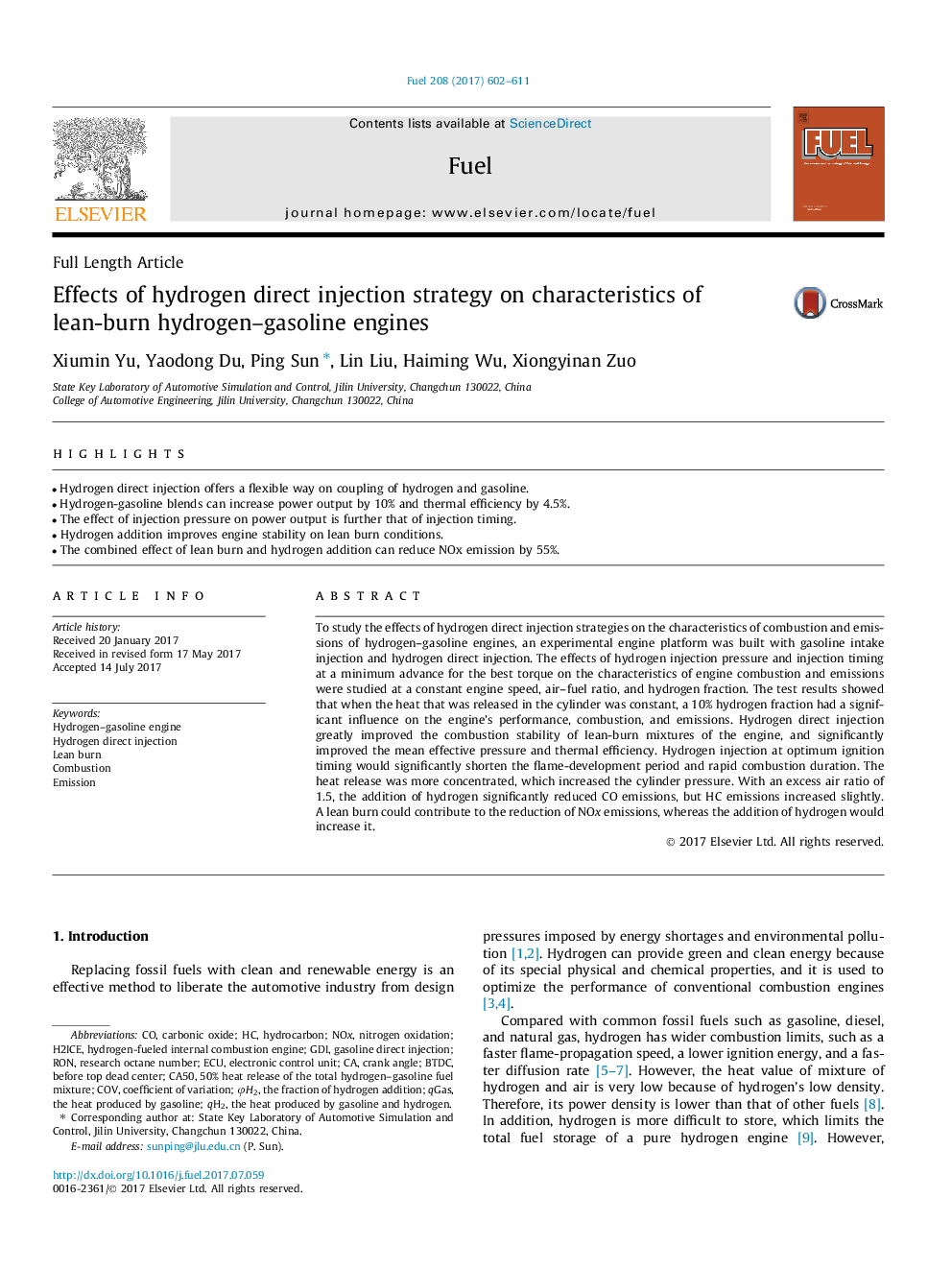| Article ID | Journal | Published Year | Pages | File Type |
|---|---|---|---|---|
| 6474195 | Fuel | 2017 | 10 Pages |
â¢Hydrogen direct injection offers a flexible way on coupling of hydrogen and gasoline.â¢Hydrogen-gasoline blends can increase power output by 10% and thermal efficiency by 4.5%.â¢The effect of injection pressure on power output is further that of injection timing.â¢Hydrogen addition improves engine stability on lean burn conditions.â¢The combined effect of lean burn and hydrogen addition can reduce NOx emission by 55%.
To study the effects of hydrogen direct injection strategies on the characteristics of combustion and emissions of hydrogen-gasoline engines, an experimental engine platform was built with gasoline intake injection and hydrogen direct injection. The effects of hydrogen injection pressure and injection timing at a minimum advance for the best torque on the characteristics of engine combustion and emissions were studied at a constant engine speed, air-fuel ratio, and hydrogen fraction. The test results showed that when the heat that was released in the cylinder was constant, a 10% hydrogen fraction had a significant influence on the engine's performance, combustion, and emissions. Hydrogen direct injection greatly improved the combustion stability of lean-burn mixtures of the engine, and significantly improved the mean effective pressure and thermal efficiency. Hydrogen injection at optimum ignition timing would significantly shorten the flame-development period and rapid combustion duration. The heat release was more concentrated, which increased the cylinder pressure. With an excess air ratio of 1.5, the addition of hydrogen significantly reduced CO emissions, but HC emissions increased slightly. A lean burn could contribute to the reduction of NOx emissions, whereas the addition of hydrogen would increase it.
